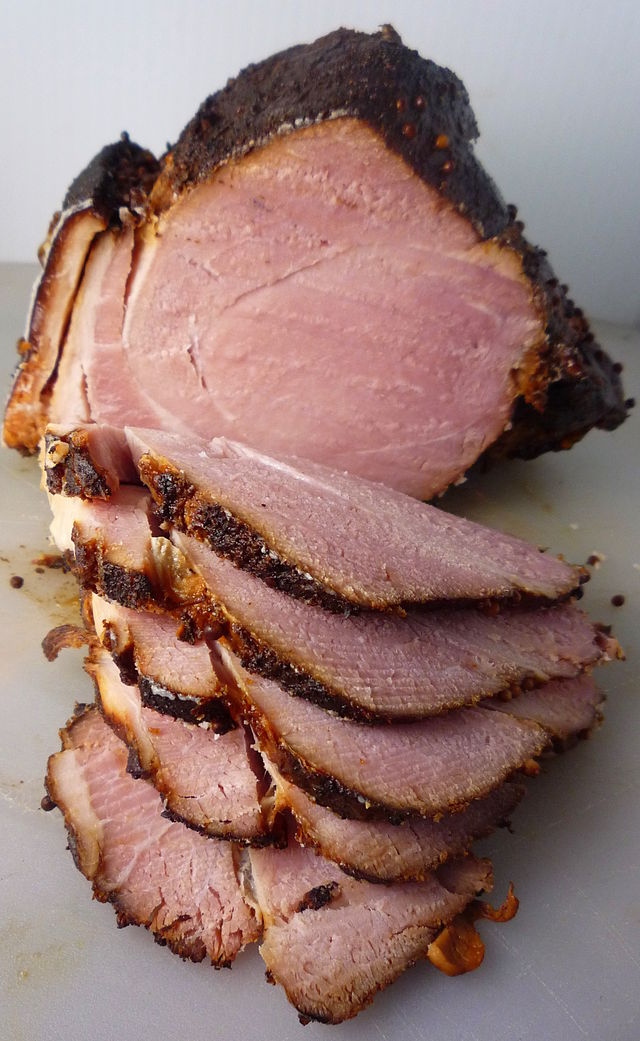Top Qs
Timeline
Chat
Perspective
Gammon (insult)
Pejorative term in British political culture From Wikipedia, the free encyclopedia
Remove ads
Gammon is a pejorative term popularised in British political culture since the 2010s. The term refers to the colour of a white person's flushed face, which purportedly resembles the type of pork of the same name.[1][2] It is characterised in this context by the Oxford English Dictionary as occurring "in various parasynthetic adjectives referring to particularly reddish or florid complexions".[3] By 2018, the term had become popularised in British political discourse to describe right-wingers and Brexiters.[1][4]
This article or section possibly contains original synthesis. Source material should verifiably mention and relate to the main topic. (May 2021) |
Remove ads
Recent history

A 2004 sports feature in The Observer described Rupert Lowe as the "gammon-cheeked Southampton chairman".[5]
In 2010, Caitlin Moran wrote that British Prime Minister David Cameron resembled "a slightly camp gammon robot" and "a C3PO made of ham" in her 13 March column in The Times,[6] later collected in her 2012 anthology Moranthology.[7]
In 2015, Ruby Tandoh called Great British Bake Off judge Paul Hollywood a "walking gammon joint".[8]
In 2017, children's author Ben Davis tweeted a picture of nine members of a BBC Question Time audience and referred to them as "the Great Wall of Gammon",[9] leading to the term becoming popularised, particularly on social media.[8][10][11][12][13]
Remove ads
Earlier historical uses
In 1604, John Marston wrote "Your devilship’s ring has no virtue, the buff-captain, the sallow-westphalian gammon-faced zaza cries" in The Malcontent.[14]
In 1622, John Taylor wrote "Where many a warlike Horse & many a Nagge mires:Thou kildst the gammon visag'd poore Westphalians" in his verse poem The Great O Toole.[15]
By the beginning of the 19th century, the word (sometimes extended to the phrase "gammon and spinach") had come to mean "humbug, a ridiculous story, deceitful talk".[16] Writers of the era who used the word or phrase include Charlotte Brontë,[17] Charles Dickens (in a number of works, including Nicholas Nickleby,[18] Bleak House,[19] The Pickwick Papers,[20] and Oliver Twist[21]), and Anthony Trollope.[22] It has been suggested there is an association between Dickens' usage of the word in Nicholas Nickleby and the modern British usage.[23] The word in its 19th Century usage remains current in Australian Aboriginal English (without reference to race or skin colour, meaning 'lying' or 'inauthentic').[24][25]
Remove ads
See also
References
Notes
Wikiwand - on
Seamless Wikipedia browsing. On steroids.
Remove ads